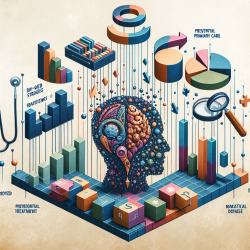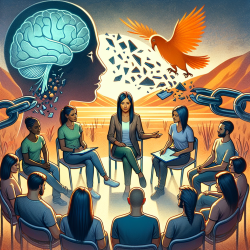Integrating Indigenous Knowledge for Enhanced Online Therapy Practices
As a Special Education Director, you are constantly seeking ways to improve the educational and therapeutic services provided to students. The research article, ‘A change of heart’: Indigenous perspectives from the Onjisay Aki Summit on climate change, offers valuable insights that can be applied to enhance the skills of practitioners, especially those involved in online therapy services like those offered by TinyEYE.
The Onjisay Aki Summit emphasized the importance of Indigenous knowledge in addressing climate change, highlighting the need for a shift in values and behaviors. This shift is not only relevant to environmental issues but can also be applied to the field of education and therapy. Here are some ways practitioners can integrate these insights into their practice:
1. Embrace a Holistic Approach
Indigenous knowledge emphasizes interconnectedness and balance. Practitioners can adopt a holistic approach by considering the physical, emotional, mental, and spiritual aspects of students. This can lead to more comprehensive and effective therapy sessions.
2. Foster Relationality and Reciprocity
Building strong relationships with students and their families is crucial. Practitioners should strive to create an environment of trust and reciprocity, where students feel valued and understood. This aligns with Indigenous values of relationality and can enhance the therapeutic process.
3. Incorporate Storytelling and Narrative
Storytelling is a powerful tool in Indigenous cultures for knowledge transmission. Practitioners can incorporate storytelling into therapy sessions to help students express themselves and make sense of their experiences. This can be particularly beneficial in online therapy, where creative engagement is essential.
4. Encourage Connection with Nature
Indigenous perspectives emphasize the importance of a connection with nature. Encouraging students to spend time outdoors and engage with the natural world can have therapeutic benefits, promoting mental well-being and reducing stress.
5. Promote Cultural Awareness and Sensitivity
Practitioners should be culturally aware and sensitive to the diverse backgrounds of their students. This involves understanding and respecting Indigenous knowledge and traditions, and integrating these perspectives into therapy practices where appropriate.
By integrating these Indigenous perspectives, practitioners can enhance their skills and provide more effective and culturally responsive therapy services. Additionally, this approach aligns with the values of inclusivity and diversity, which are essential in today’s educational landscape.
For practitioners interested in further exploring the outcomes of the Onjisay Aki Summit, additional research and engagement with Indigenous communities can provide deeper insights and understanding. This ongoing learning process is crucial for developing a practice that is both informed and transformative.
To read the original research paper, please follow this link: ‘A change of heart’: Indigenous perspectives from the Onjisay Aki Summit on climate change.










